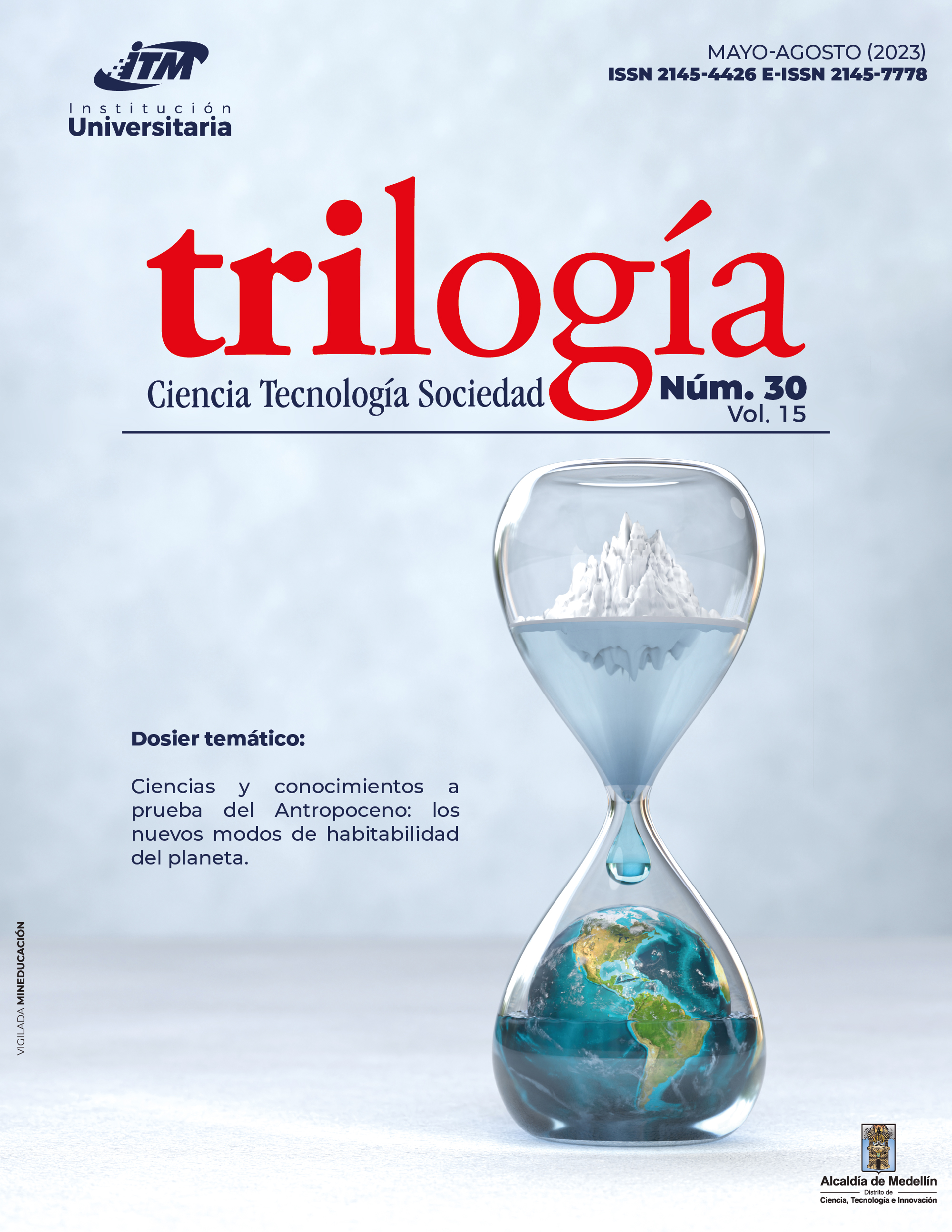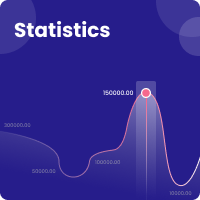Pragmatism and Technology to Improve Research Skills and Critical Thinking about Climate Change and the Anthropocene
Abstract
Technology can be used in pedagogical ways to improve the research skills and critical thinking of college students when they reflect on the causes and effects of the Anthropocene and climate change. This article analyzes a strategy implemented in the second semester of 2021 with twenty-seven (27) students enrolled in a lecture course entitled Saint Albertus Magnus: Science, Technology, and Bioethics, which is part of the Bachelor of Engineering program offered by Saint Thomas Aquinas University in Tunja. First, this article discusses some definitions of the Anthropocene and climate change, giving the reader some context about their impact and consequences in regions in South and Central America. Second, it presents arguments for using certain technological applications as pedagogical mediators that enable students to get closer to research from a pragmatic perspective. In conclusion, some technological applications such as Google Earth—accompanied by several types of questions—spark students’ curiosity, interest, and amazement, bringing them closer to science. These applications, in combination, contribute to their critical-reflective thinking about these phenomena that threaten and put life at risk on a planetary scale.
References
Alonso, J. (2017, 01 de noviembre). América Latina y el cambio climático: una carrera de fondo. Deutsche Welle. https://www.dw.com/es/am%C3%A9rica-latina-y-el-cambio-clim%C3%A1tico-una-carrera-de-fondo/a-41191058
Arias Maldonado, M. (2018). Antropoceno: La política en la era humana. Editorial Taurus. http://catedradatos.com.ar/media/Antropoceno.-La-politica-en-la-Manuel-Arias-Maldonado.pdf
Bernstein, R. (2010). Filosofía y Democracia: John Dewey. Herder Editorial.
Bernstein, R. J. (2013). El giro pragmático. Anthropos Editorial.
Cegarra Sánchez, J. (2004). La Tecnología. En Metodología de la investigación científica y tecnológica (pp. 19-40). Ediciones Díaz de Santos.
Consejo Superior de Investigaciones Científicas. (2021, 27 de septiembre). El CSIC presenta el atlas interactivo del IPCC, que proyecta distintos escenarios regionales del calentamiento global. https://www.csic.es/es/actualidad-del-csic/el-csic-presenta-el-atlas-interactivo-del-ipcc-que-proyecta-distintos-escenarios
Conversi, D. (2020). Hacia un futuro incierto: cambio climático, nacionalismo y cosmopolitismo de supervivencia. En F. J. Moreno Fuentes, y E. del Pino (eds.), Las transformaciones territoriales y sociales del Estado en la edad digital (pp. 99-122). Centro de Estudios Políticos y Constitucionales.
De Zubiría, J. (2020, 06 de abril). La educación en tiempos de cuarentena. Semana. https://www.semana.com/opinion/articulo/la-educacion-en-tiempos-de-cuarentena-columna-de-julian-de-zubiria/661969
Eslava, E., y Pongutá, C. F. (2018). Pragmatismo norteamericano. Condiciones para el conocimiento en sus orígenes: hacia una construcción de epistemologías de las Américas. Cuadernos de Filosofía Latinoamericana, 39(119), 175-214. https://doi.org/10.15332/25005375.5056
Goleman, D. (2009). Inteligencia Ecológica: cómo el hecho de conocer las consecuencias ocultas de lo que compramos puede cambiarlo todo. Penguin Random House.
Google Earth muestra décadas de cambio climático en segundos. (2021, 15 de abril). Deutsche Welle. https://www.dw.com/es/esta-nueva-herramienta-de-google-earth-muestra-d%C3%A9cadas-de-cambio-clim%C3%A1tico-en-segundos/a-57218251
Haraway, D. J. (2019). Seguir con el problema. Generar parentesco en el Chthuluceno. Editorial Consonni.
Intergovernmental Panel on Climate Change. (2018). Global Warming of 1.5°C. An IPCC Special Report on the impacts of global warming of 1.5°C above pre-industrial levels and related global greenhouse gas emission pathways, in the context of strengthening the global response to the threat of climate change, sustainable development, and efforts to eradicate poverty. Cambridge University Press. https://doi.org/10.1017/9781009157940
Kuhn, T. S. (1971). La estructura de las revoluciones científicas. Editorial Fondo de Cultura Económica.
Latorre Iglesias, E. L., Castro Molina, K. P., y Potes Comas, I. D. (2018). Las TIC, las TAC y las TEP: Innovación educativa en la era conceptual. Universidad Sergio Arboleda. http://hdl.handle.net/11232/1219
Martins, A. (2021, 13 de agosto). Cambio climático: los fenómenos adversos a los que se enfrentará América Latina, según el contundente informe de la ONU. BBC News Mundo. https://www.bbc.com/mundo/noticias-58191363
Ministerio de Ambiente y Desarrollo Sostenible. (s.f.). Cambio Climático. https://archivo.minambiente.gov.co/index.php/cambio-climatico
Organización de las Naciones Unidas para la Educación, la Ciencia y la Cultura. (2018). ¡Bienvenidos al Antropoceno! El correo de la Unesco (2). https://unesdoc.unesco.org/ark:/48223/pf0000261900_spa
Peirce, C. S. (2012). El pragmatismo como lógica de la abducción. En N. Houser, y C. Kloesel (eds.), Obra filosófica reunida. Tomo II (1893-1913) (pp. 293-310). Fondo de Cultura Económica.
Peirce, C. S. (2008). El pragmatismo. Ediciones Encuentro.
Pongutá Puerto, C. F. N. (2016). Anticipaciones de la semiótica de Peirce en la lógica aristotélica. Ediciones USTA.
Real Academia Española. (1992). Diccionario de la lengua española (21.a ed.).
Reimers, F. M., y Schleicher, A. (2020). Un marco para guiar una respuesta educativa a la pandemia del 2020 del COVID-19. https://learningportal.iiep.unesco.org/es/biblioteca/un-marco-para-guiar-una-respuesta-educativa-a-la-pandemia-del-2020-del-covid-19
Rodríguez Acevedo, G. D. (1998). Ciencia, Tecnología y Sociedad: una mirada desde la Educación en Tecnología. Revista Iberoamericana de Educación, 18, 107-143. https://doi.org/10.35362/rie1801094
Servigne, P., y Stevens, R. (2020). Colapsologia. Arpa & Alfil Editores.
Svampa, M. (2019). El Antropoceno como diagnóstico y paradigma. Lecturas globales desde el Sur. Utopía y Praxis Latinoamericana, 24(84), 33-54. https://doi.org/10.5281/zenodo.2653161
Syvitski, J., Waters, C. N., Day, J., Milliman, J. D., Summerhayes, C., Steffen, W., Zalasiewicz, J., Cearreta, A., Gałuszka, A., Hajdas, I., Head, M. J., Leinfelder, R., McNeill, J. R., Poirier, C., Rose, N. L., Shotyk, W., Wagreich, M., y Williams, M. (2020). Extraordinary human energy consumption and resultant geological impacts beginning around 1950 CE initiated the proposed Anthropocene Epoch. Comunications Earth & Environment, 32. https://doi.org/10.1038/s43247-020-00029-y
Tuffanelli, L. (2010). Didáctica de las operaciones mentales. Comprender ¿Qué es? ¿Cómo funciona? Ministerio de Educación, y Narcea. https://sede.educacion.gob.es/publiventa/PdfServlet?pdf=VP15391.pdf&area=E
Downloads
Copyright (c) 2023 Jonnathan Abdul Rincón Díaz

This work is licensed under a Creative Commons Attribution-NonCommercial-ShareAlike 4.0 International License.
Altmetric










